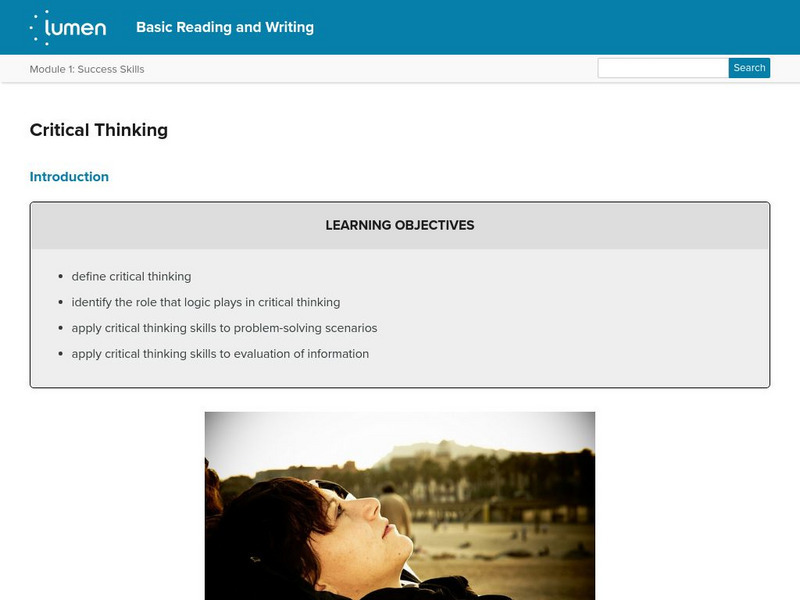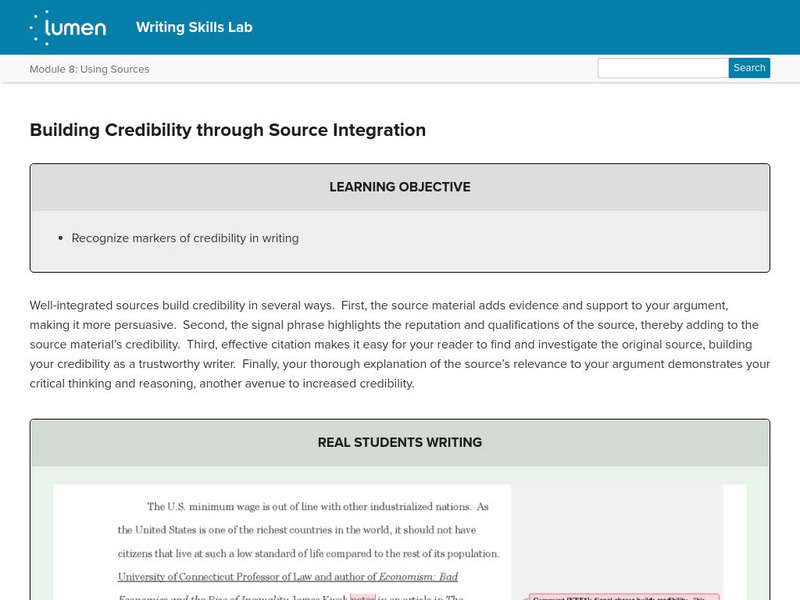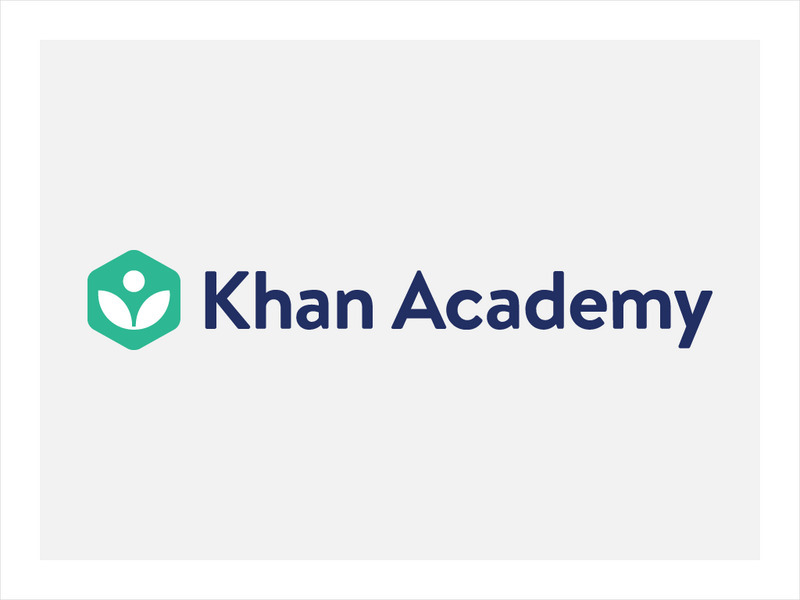Hi, what do you want to do?
Lumen Learning
Lumen: Success Skills: Critical Thinking
This lesson focuses on critical thinking including a definition, examples, a video of critical thinking in action, logic in critical thinking, questions a critical thinker asks, guidelines for critical thinking, problem-solving, and...
Online Writing Lab at Purdue University
Purdue University Owl: Academic Writing: Reverse Paramedic Method
Explanations and examples of the Reverse Paramedic Method used to edit scientific writing.
Lumen Learning
Lumen: Analysis: Suspend Judgment
This article focuses on the need to suspend judgment and keep an open mind while analyzing a situation or researching a topic.
Lumen Learning
Lumen: Analysis: Process Analysis
This lesson focuses on process analysis including processes by people, machines, and nature. They can be classified as descriptive and prescriptive. It also includes a practice activity.
Lumen Learning
Lumen: Evaluating Sources: Introduction to Multimedia Sources
An introduction to methods of evaluating multimedia sources.
Lumen Learning
Lumen: Using Sources: Building Credibility Through Source Integration
This lesson focuses on building credibility by properly integrating source materials. It discusses three ways of improving credibility through integration, provides an example, and a practice exercise. SL.9-10.2 eval & integrate...
Lumen Learning
Lumen: Using Sources: Paraphrase and Summary
This lesson focuses on how to integrate source material using paraphrase and summary and the differences between the two. It also provides a practice exercise.
Lumen Learning
Lumen: Using Sources: Putting It Together: Using Sources
This is a summary of the lessons on integrating credible sources using paraphrase, summary, and quotations and citing sources. Click on the Next button on the bottom right to learn about Why It Matters: Multimodality; you will have the...
Lumen Learning
Lumen: Critical Reading: Logic and Structure
This lesson focuses on structure and logic including types and purposes of essays, organizational patterns, argumentative writing, and logic and fallacies.
Lumen Learning
Lumen: Research Process: Introduction to the Research Process
This lesson focuses on the reliability of research sources including a video example. It also lists the learning objectives for researching.
Lumen Learning
Lumen: Research Process: Finding Sources
This instructional activity focuses on how to find sources including information on research strategies: preliminary, intermediate, and advanced. It provides a variety of resources available in each level including videos: " How To...
Lumen Learning
Lumen: Research Process: Conclusion to Research Process
This article focuses on the real purpose of research, to learn about the subject of the investigation as much as possible and then form those theories, opinions, and arguments on the basis of this newly found knowledge and understanding...
University of Minnesota
University of Minnesota: Assignment Calculator
Want a realistic timeline for that research project? Use these tips and resources to get a handle on what to do and when to do it. It offers templates several types of research projects such as speech, media project, primary sources,...
University of Victoria (Canada)
Uvcs: Critical Reading Exercise
Students read quotations from different "interest groups" or "lobbies" in this exercise and then perform a multiple-choice test to evaluate the credibility of each lobby group.
CPALMS
Cpalms: Lafs.1112.rst.1.3: Follow Precisely a Complex Multistep Procedure
Find a collection of standards-aligned teacher and student resources where students follow procedural text.
Other
Learning Design Collaborative: Cer: Claim, Evidence, and Reasoning
Students write a scientific claim that is backed up by evidence and supported by scientific reasoning. Base your answer on your reading of a data table.
Other
Csicop: Field Guide to Critical Thinking
This article, originally published in Skeptical Inquirer, outlines some of the key components of the scientific problem-solving process while addressing the many reasons for the popularity of paranormal beliefs in the U.S. (Published in...
CommonLit
Common Lit: Units: Teaching Units
Complete teaching units (12) by grade level. CommonLit units are crafted to be both engaging and rigorous, featuring a variety of literary and informational texts from diverse sources. Reading, writing, and discussion are prioritized in...
Khan Academy
Khan Academy: Types of Conclusions
You might find it helpful to categorize the kind of conclusion you're dealing with as you approach passages that contain arguments on the LSAT. Your success in analyzing arguments-passages with a conclusion and supporting evidence-starts...
Khan Academy
Khan Academy: Organizing Information Quick Guide
Organizing information questions ask you to understand and analyze how a passage works to make an argument. What is the progression of ideas in the passage? or What is the purpose of a specific paragraph?
Khan Academy
Khan Academy: The Sat Reading Test: Synthesis
One of the question types you'll see on the SAT Reading Test is called synthesis: these questions ask you to draw conclusions and make connections between two related passages or between passages and informational graphics.
Khan Academy
Khan Academy: The Sat Reading Test: Information and Ideas
The Information and Ideas category of the SAT Reading Test includes questions that focus on what the passage says (directly or indirectly). To interpret the author's message, you'll need to consider both what's stated and what's implied...
Ted Nellen
Cyber English (By Ted Nellen): Synesthesia
This is a glossary entry for the term "Synesthesia" including a definition and links to more information and examples.
Other
Braindance: Reading More Selectively
Gives specific advice on the most effective way to gain information through reading, especially necessary because the glut of information has created "an increasing need for the ability to scan." There are suggestions on how to decide...

























